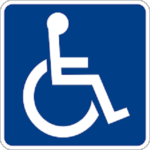 By Jim Cline and Erica Shelley Nelson
By Jim Cline and Erica Shelley Nelson
Representing the Injured or Disabled Member
Part 36: An Introduction to Workers Compensation and the Injured Public Safety Officer
This article is the 36th in a multiple part series covering the rights your injured and disabled members have and how you, as a union or guild representative, can best assist them. Over the next several weeks and continuing for the next several weeks, we’ll be publishing, in various segments, information on how state and federal laws protect your members who are hurt or otherwise unable to work. We’ll cover topics including disability discrimination law, the FMLA, job protection rights under the CBA, workers compensation, disability benefits, and the right to bring a civil lawsuit.
The topics we are covering are also going to be addressed in detail in an upcoming book we’re publishing: Helping the Injured or Disabled Member: A Guidebook for the Washington Law Enforcement and Fire Union Representative. It is also our intention over the course of the next year to travel through the state and provide training to public safety union and guild representatives on how best to enforce these rights. Expect to hear more on that in the months ahead.
This 36th article in these newsletter series provides a discussion introducing the topic how state workers compensation provides for independent medical examinations. For more information, visit our Premium Website. On the website you’ll find an on line version of the Injured or Disabled Member’s Guidebook and other information on the laws covering your members.
During the course of an industrial injury claim, the Department or self-insurer will likely request that the injured worker submit to an independent medical examination (IME). There is much controversy over whether these IMEs are truly “independent.” Often the exams are conducted by physicians who are retired from practice, and who specialize in the particular area of medicine that relates to the specific injury or medical condition at issue.
The Department or self-insured employer will frequently order an injured worker to attend an IME when they disagree with the opinions of the worker’s attending provider. However, even if the independent medical examiner offers a different opinion than the attending physician, “special consideration” is provided to the opinions and findings of attending physicians.[1] For good reason. Attending providers spend the most time with the worker and are most familiar with the injured worker’s medical condition or conditions and related symptoms, treatment, and prognosis. Therefore, the attending provider’s opinion should be afforded more weight than the opinion of the independent medical examiner who likely has only examined the worker on one occasion, for a very brief appointment.
While the process of preparing for and undergoing an IME can be stressful, the injured member cannot refuse to attend. If the worker does refuse to attend, the Department or self-insured employer can issue a “non-cooperation” order and stop paying time loss benefits. Once the Department or self-insured employer has scheduled an IME, if the injured worker has an attorney, the attorney should be consulted for advice prior to the IME. The following tips may also be useful:
- Communication. Once an IME is scheduled, the injured member should schedule an appointment with his or her attending provider to tell them the date of the IME, and the name of the examiner. The injured member should also tell their attending provider that after the IME, the Department or self-insured employer will likely send a form to the attending provider with a copy of the IME report. The form will ask the attending provider whether they “agree” or “disagree” with the findings of the examiner. If they do not agree with the findings or recommendations in the report, it is incumbent on the attending provider to explain why they disagree.
- Honesty. During the IME, be truthful, pleasant, and communicate directly and clearly with the examiner. The examiner is not only assessing the injured member’s medical condition(s), ability to work, treatment, and the level of impairment, the examiner is also evaluating the credibility and likeability of the injured member.
- Knowledge. Understand the purpose of the IME and any potential biases the examiner may hold. If an examiner has conducted hundreds of IMEs, but has never (or very rarely) testified on behalf of an injured worker, then there is a significant likelihood the examiner may be biased.
[1] Hamilton v. Department of Labor & Indus., 11 Wn.2d 569 (1988).
**Visit our Premium Website for more information on Workers Compensation. **



